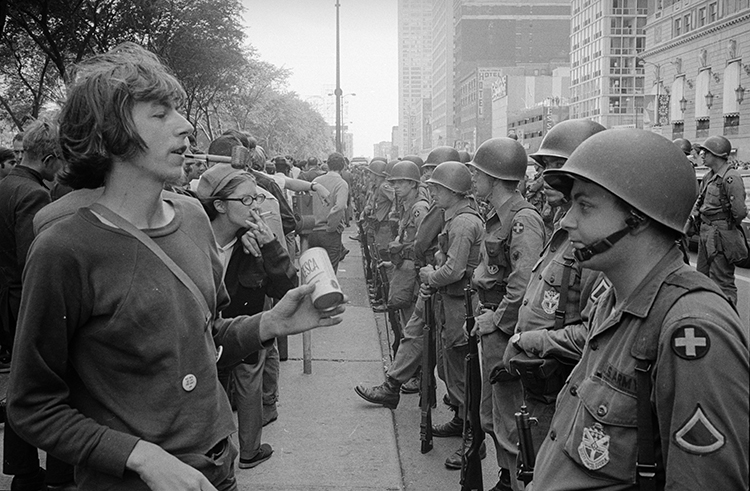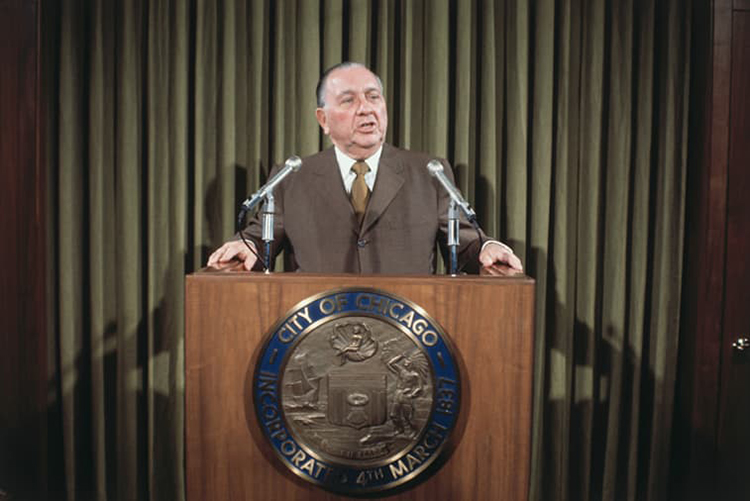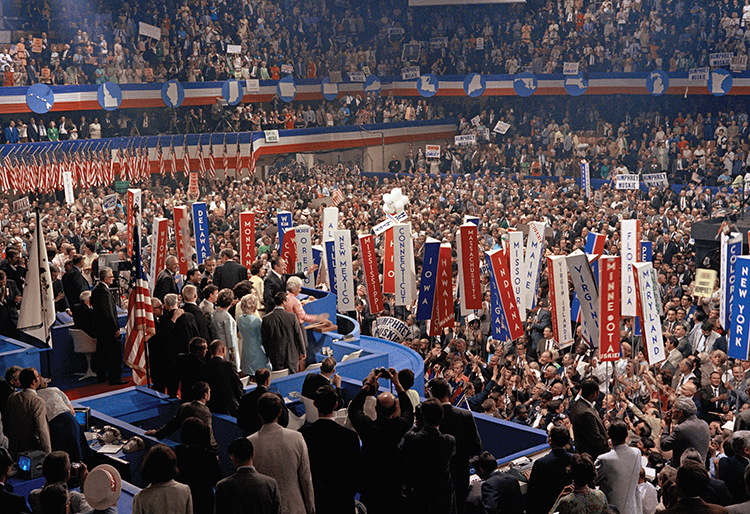Impeaching the President
Thursday, December 19th, 2019December 19, 2019
Yesterday, December 18, the United States House of Representatives impeached President Donald Trump. Impeachment is the formal accusation of serious misconduct against a government official. In this case, the accusations of misconduct against President Trump include the abuse of presidential power and the obstruction of Congress—charges that are explained below. Impeachment is an extraordinary check on presidential power. The Constitution specifies that officials shall be removed from office after impeachment for, and conviction of, “treason, bribery, or other high crimes and misdemeanors.” No president, however, has ever been removed from office under the terms of impeachment.
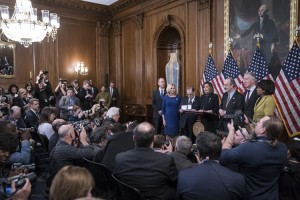
Speaker of the House Nancy Pelosi speaks to the media following the vote to impeach President Donald Trump on Dec. 18, 2019, in Washington, D.C. Credit: © Sarah Silbiger, Getty Images
In the articles of impeachment, Trump is accused of abusing his power as president by asking a foreign government—that of Ukraine—to investigate a political rival. Asking a foreign government to interfere in the U.S. political system is forbidden by the U.S. Constitution. Trump is accused of pressuring the president of Ukraine to investigate former Vice President Joe Biden, a leading Democratic contender in the 2020 presidential election. Trump is also accused of obstructing the congressional investigation into the matter. Despite admitting that he asked Ukraine to investigate Biden, Trump insists he did nothing wrong, and he has called the impeachment process a “witch hunt.”
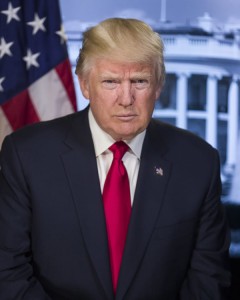
On Dec. 18, 2019, Donald Trump became the third U.S. president in history to be impeached by the House of Representatives. Credit: The White House
Wednesday’s impeachment vote in the House fell almost entirely along political party lines. The abuse of power charge was approved by a vote of 230-197 (229 Democrats and 1 Independent voted in favor; 2 Democrats opposed the charge, as did all 195 Republicans who continued to support Trump, a Republican; 4 other representatives did not take part). The second charge, of obstruction of Congress, was approved by a vote of 229-198 (228 Democrats and 1 Independent in favor; 3 Democrats and 195 Republicans opposed; 4 not taking part). In January, the impeachment process is due to pass to the Senate, where a trial will determine whether to convict the president and remove him from office. Republicans have a majority in the Senate, so reaching the two-thirds vote required for conviction is unlikely.
Trump is the third U.S. president to be impeached. In 1998, the House of Representatives impeached President Bill Clinton for perjury and obstruction of justice. The charges developed out of Clinton’s efforts to conceal an improper sexual relationship. The House sent its findings to the Senate, which conducted a trial and found Clinton not guilty. In 1868, the House impeached President Andrew Johnson, who had inherited a wartime dispute between his predecessor, President Abraham Lincoln, and Congress over how to treat the South after the Civil War. After impeachment, a Senate vote failed to remove Johnson from office. Another president, Richard Nixon, resigned from office while facing impeachment in 1974 for his involvement in the Watergate scandal.

